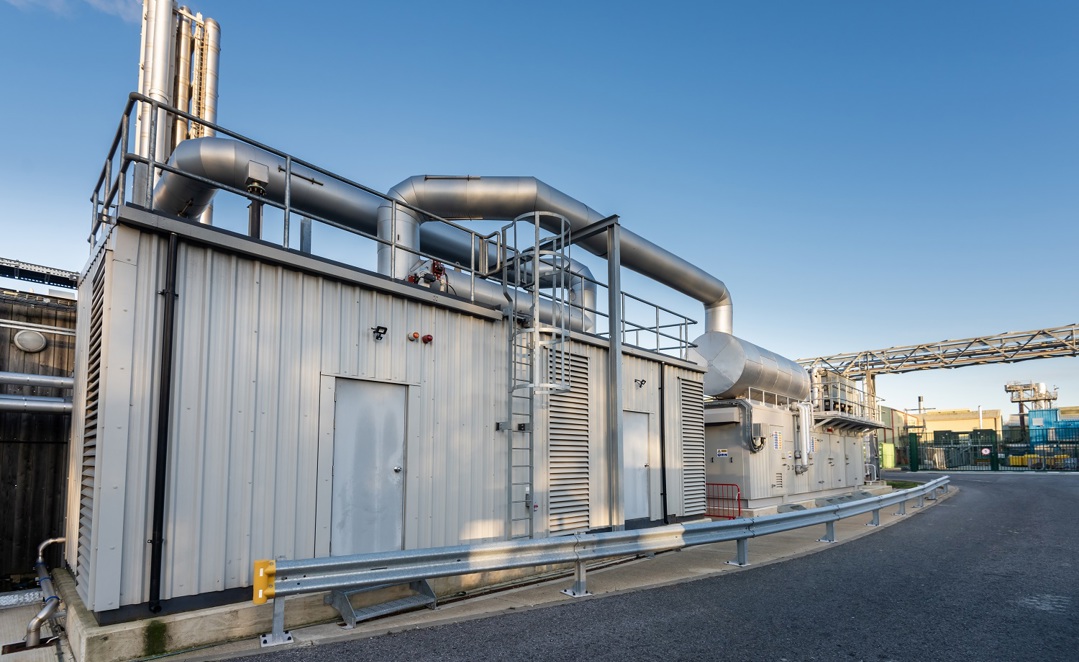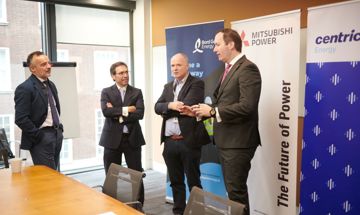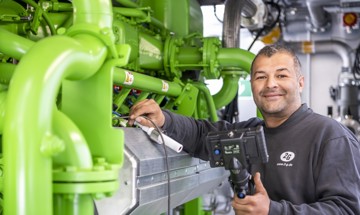Centrica Business Solutions has partnered with The Pirbright Institute to deliver sustainable on-site technology that will help reduce its net energy use by more than 10 per cent by 2026.
Centrica installed a new Combined Heat and Power Plant (CHP), which will provide around 75 per cent of Pirbright’s future power needs. The CHP uses natural gas to generate electricity and hot water at the site, with its exhaust gases also used to feed into a heat recovery generator to provide steam. It means CHP technology is over twice as efficient as conventional power sources and can lower organisational reliance on the Grid.
The Institute, which is dedicated to the study of infectious diseases of farm animals, has already devised an energy plan which has introduced energy-saving upgrades across the Surrey campus, including the closure of energy-inefficient buildings, the introduction of efficient lighting and a programme to raise staff awareness of energy consumption.
Professor Bryan Charleston, Institute Director, said: “By the start of 2025/2026, we will have reduced our net energy consumption by 12.5 per cent, saving us nearly £700,000 a year. All our staff have a key part to play in our sustainable future as we aim to drive down energy use further, helping both the environment and our Institute’s financial sustainability.”
Greg McKenna, Managing Director of Centrica Business Solutions, said: “We were delighted to work with Pirbright to help fulfil its commitment to a zero carbon future by 2040, in line with UKRI’s Environmental Sustainability Strategy. The level of energy savings achieved can help drive further carbon cutting measures. It’s this integrated energy solution alongside the onsite energy generation, that is helping the Institute attain its ambition.”
Further energy efficiencies are planned in the months ahead, including a study of potential heat recovery from the CHP to identify future savings, and a feasibility study to determine whether the use of solar panels can be expanded on the Pirbright site.
Professor Charleston added: “In line with BBSRC’s commitment to driving down energy use, we have developed a programme of energy projects which will reduce energy costs by a minimum of around £100k each year throughout the funding cycle. Any new building proposals will carefully consider the carbon impacts of facilities throughout their whole life, from the building materials used to the energy consumption and energy sources employed once they are operational.”
Pirbright’s finances are also aligned to the green agenda and operate with Barclays’ Green Deposit Scheme, which allows deposits by the Institute to be earmarked against the banks’ green bonds, which in turn align with climate-related projects, including energy efficiency, renewable energy, green transport, sustainable food, agriculture and forestry, waste management and greenhouse gas emission reduction.


News
Energy security boost after Centrica and Repsol agree LNG supply deal
Energy for Business

News
Centrica Energy, Bord Gáis Energy and Mitsubishi Power Announce Development of Europe's First Ammonia Fired Power Generation Facility
Energy for Business

News
Centrica’s Rough storage facility pumps gas into grid to meet increased demand.
Energy for Business

News
British Gas Increases Support for Great British Businesses with grants and lower priced contracts
Energy for Business

News
Windsor hydrogen showcase is jewel in the crown of net zero road trip
Energy for Business

News
Businesses back hydrogen trials to accelerate net zero ambitions
Energy for Business
